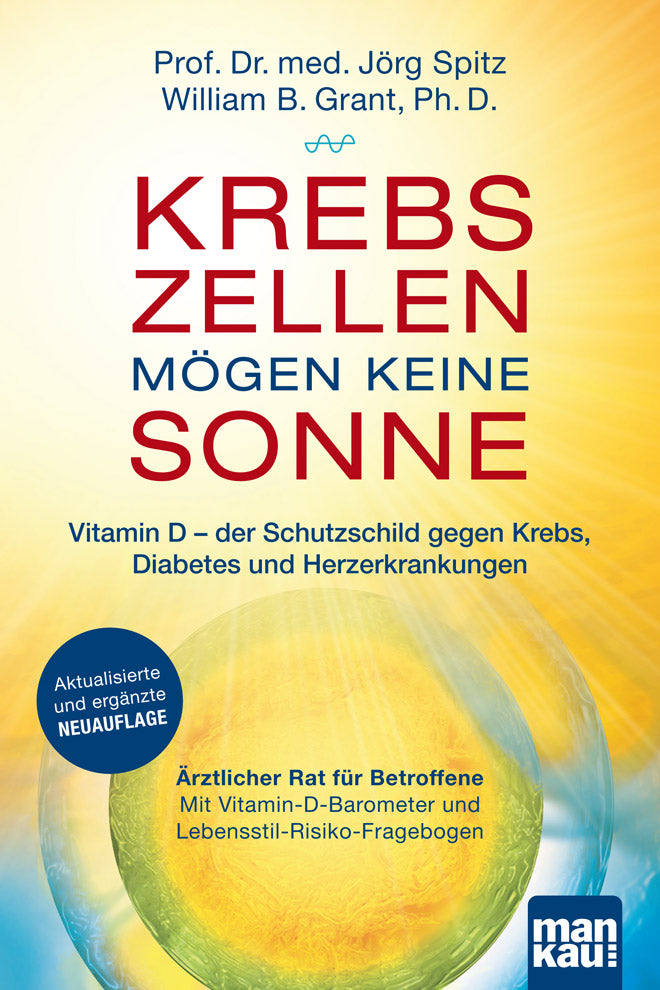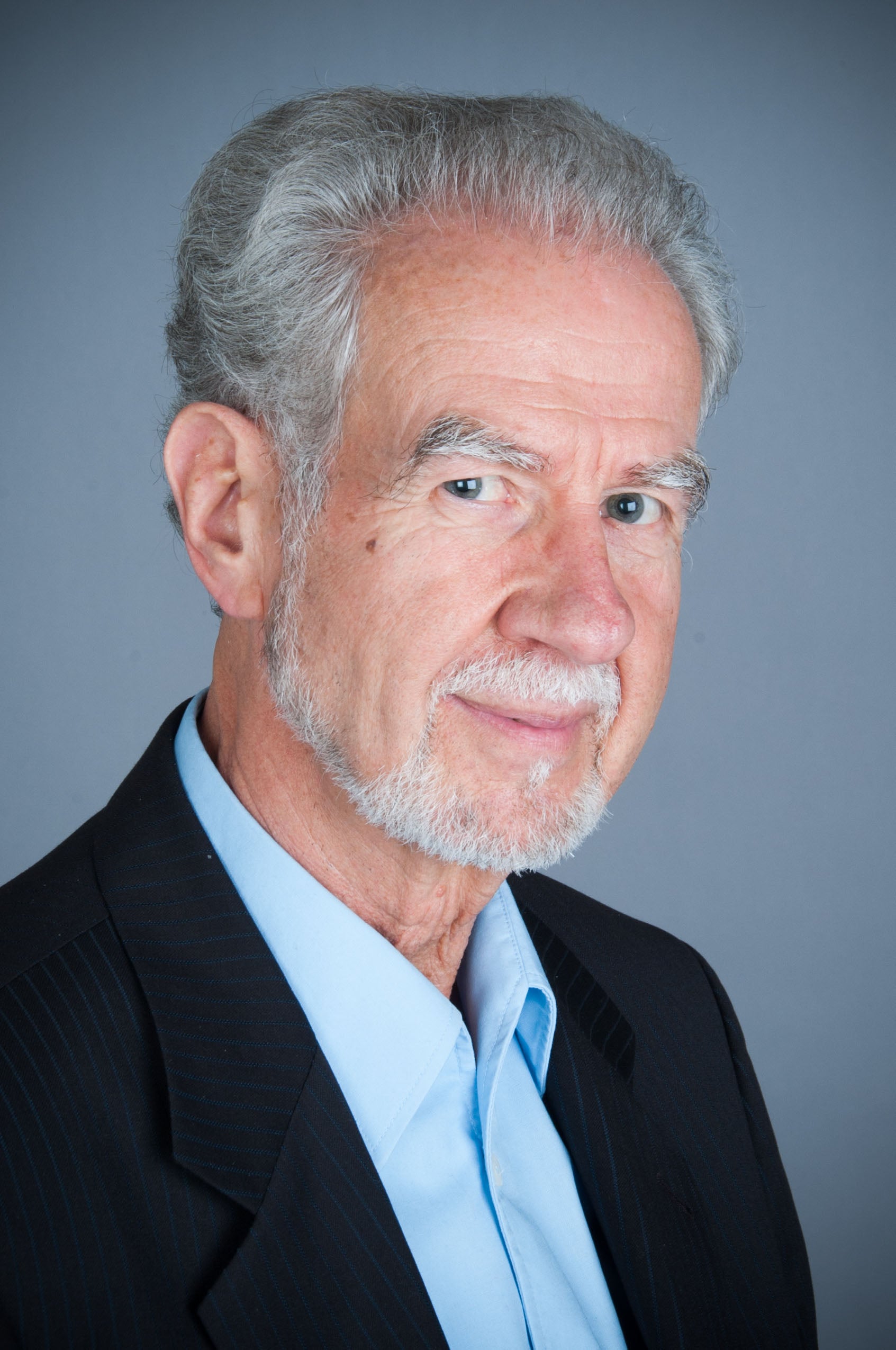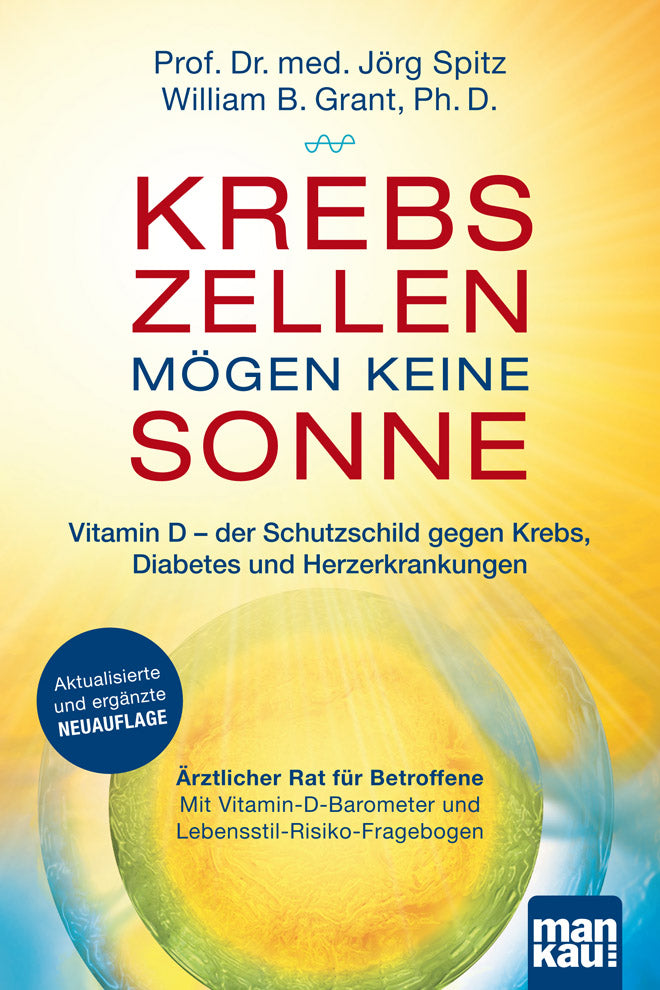
Spring sun as cancer prevention
Spring sun as cancer prevention
The updated new edition of " Cancer cells don't like the sun " by Prof. Dr. med Jörg Spitz explains the latest research results on the sun hormone vitamin D
In their guide, Prof. Dr. med. Jörg Spitz and William B. Grant, Ph. D., explain in detail and in a way that is easy to understand the positive influence that sunlight has on health. Especially at the beginning of spring, it is important to ensure that the skin produces sufficient vitamin D.
Don’t be afraid of the life-giving sunlight!
After a long and cold winter, people long to enjoy the first warm rays of sunshine outdoors. However, the fear of skin cancer and the excessive use of sunscreen often mean that stores of the vital vitamin D are not replenished sufficiently. The preventive medicine specialist Prof. Dr. med. Jörg Spitz and the leading vitamin D expert William B. Grant, Ph. D., have been warning for years against underestimating the positive effects of sunlight and the widespread vitamin D deficiency.
Although knowledge about vitamin D and the number of people who regularly compensate for their vitamin D deficiency have multiplied since the publication of "Cancer cells don't like the sun" (1st edition 2010) and the compact guide "Vitamin D. The sun hormone" (2014), we are still far from having reached a satisfactory situation: "On the one hand, the majority of people are still deficient, and on the other hand, cancer as a disease of civilization is still on the rise." Reasons enough to continue to make an important contribution to education and prevention with a revised, updated and supplemented new edition.
Cancer risk lifestyle
Our skin is actually able to produce enough vitamin D for the body with the help of sunlight. However, age, position of the sun, skin color and especially our lifestyle limit this ability. "In industrialized countries worldwide, urbanization and the associated changes in lifestyle have led to a vitamin D deficiency in the population," the scientists found. At least two thirds of all people living in northern latitudes have a more or less severe vitamin D deficiency, especially in the winter months.
A very important risk factor for the deficiency is the generous use of sun protection due to the widespread fear of a malignant skin tumor. Excessive sunbathing is undoubtedly dangerous, but "the dose makes the poison." In general, UV-B radiation leads to a higher vitamin D level in the body, and this in turn reduces the risk of developing cancer. If the skin - and not the face, which is very often exposed to the sun anyway, but rather the arms and legs - is "exposed" to UV radiation in the right amount, but regularly, and thus trained, it reacts not only by producing protective vitamin D, but also generally by increasing and also protective pigment production.
Prevention with vitamin D
There is an overwhelming number of medical studies that show that as vitamin D levels increase, the risk of developing cancer or other lifestyle diseases (heart attack, stroke, diabetes, etc.) decreases. Vitamin D is involved in many processes in our body, for example, it stabilizes the circulation, lowers blood pressure and promotes the function of muscles and the nervous system. Vitamin D is therefore a key factor in health care.
The constantly growing number of scientific research results now allows for more detailed and precise statements on the effect of vitamin D on the development and spread of malignant tumors. Vitamin D levels are also particularly important in tumor aftercare, because they not only reduce the risk of metastases or local recurrences, but also have a positive effect on psychological problems such as depression, which occurs frequently in the context of tumors. "In all the test laboratories of the major pharmaceutical companies in the world, it will probably be difficult to find a preparation that even comes close to the positive properties of vitamin D in relation to tumor development and spread," the authors summarize. "And what's more, it has no side effects and is available practically free of charge!"
Book tip:
Prof. Dr. med. Jörg Spitz / William B. Grant, Ph. D.: Cancer cells don’t like the sun.
Vitamin D – the protective shield against cancer, diabetes and heart disease
Medical advice for those affected. Mankau Verlag, 3rd updated and supplemented edition 2017, full color, 14 x 21 cm, 157 pages, €12.95 (D) / €13.40 (A), ISBN 978-3-86374-394-9.
Link recommendations:
More information about the guide "Cancer cells don't like sun"
More about Prof. Dr. med. Jörg Spitz
More about William B. Grant, Ph. D
To the Internet forum with Prof. Dr. med. Jörg Spitz and William B. Grant, Ph. D











